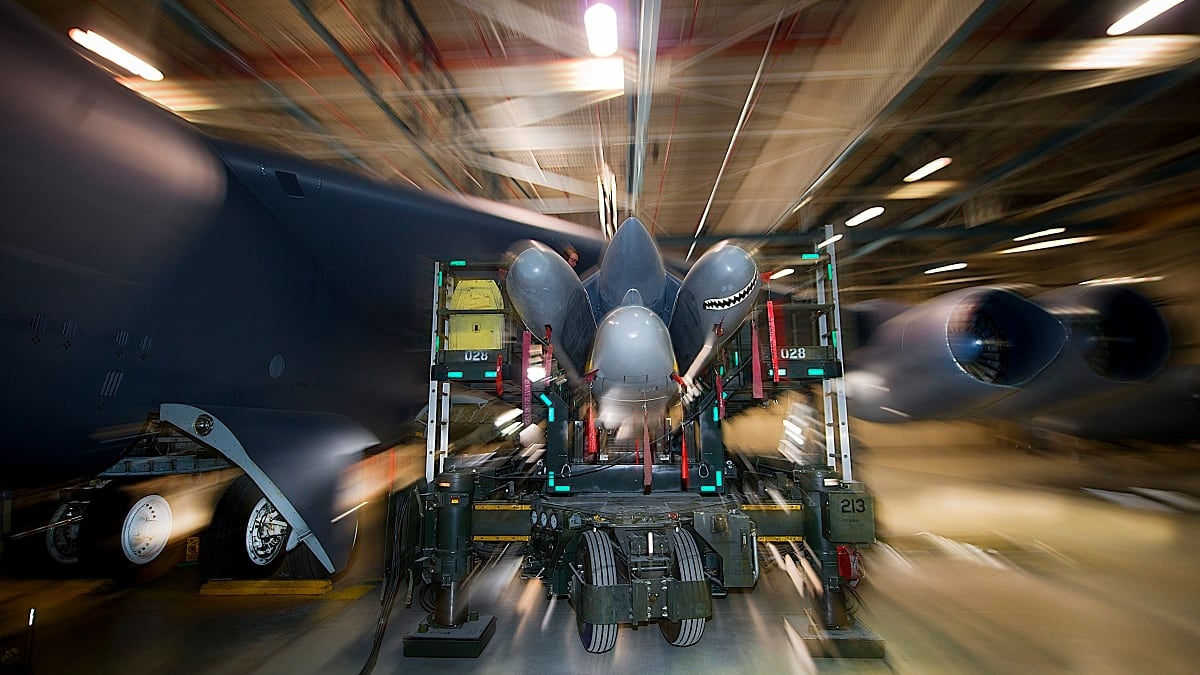Alongside the tumultuous presidential transition, the incoming Biden administration faces a deteriorating international situation. Great power rivals in China and Russia increasingly challenge American global leadership, while American allies feel abandoned in a dangerous world.
In response to these global challenges, the Biden administration will be tempted to slow or halt the modernization of the American nuclear arsenal. But slowing nuclear modernization would have disastrous consequences for Biden’s national security goals of maintaining deterrence, rebuilding arms control, and halting nuclear proliferation. Delaying modernization will not save money, and over the longer term will cause serious harm to American national security.
Nuclear modernization is essential to Biden’s goal of strengthening America to meet the “strategic challenges” posed by China and Russia. Given American conventional military superiority, many Americans see nuclear weapons as a relic of a bygone age, increasingly out of step with the gray-zone threats and cyberattacks of the 21st century.
Yet American rivals do not agree. China and Russia are quickly modernizing their nuclear arsenals, which they see as key to coercing American and allied leaders during crises. Resisting this coercion will require that American and allied leaders stand together, confident in the deterrent capability of the American nuclear arsenal. Robust deterrence requires robust nuclear modernization.
RELATED

Nuclear modernization is also necessary for future arms control. Biden has announced his intention to extend the New START Treaty, whose limits on the size of the American and Russian nuclear arsenals provide useful breathing room for rebuilding American nuclear forces. Yet beyond New START, the future of great power arms limitation remains uncertain.
Building a new arms control regime with rivals like China and Russia will require a whole-of-government effort. But it will also require American nuclear modernization, without which adversaries will have no incentive to negotiate. Proposals to advance arms limitation by slowing American nuclear modernization are thus self-defeating; Chinese and Russian leaders will not take American proposals to limit their nuclear forces seriously if they can simply wait for the United States to disarm unilaterally. If Biden hopes to build on his New START extension, he will need the leverage that current modernization plans provide.
Finally, modernization aids nuclear nonproliferation, another of Biden’s priorities. In addition to deterring attacks upon American soil, the United States also extends a “nuclear umbrella” over its allies. By reassuring allies of the American commitment to defend them – by nuclear force, if necessary – the United States removes a key rationale for partners to build their own nuclear weapons, thus keeping the number of nuclear-armed states low even as international tensions run high. This “strategy of nuclear inhibition” has proven remarkably successful, but relies on the credibility of American reassurances against nuclear threats.
Slowing nuclear modernization erodes said credibility – conveying, instead, that the United States does not take adversary nuclear capabilities seriously, and will not maintain past commitments to extending nuclear deterrence. By failing to invest in its nuclear commitments, the United States would push allies to pursue their own independent capabilities against growing threats.
Slowing nuclear modernization is superficially tempting in an era of budget austerity and transnational challenges, but the Biden administration must resist that pull. Despite lurid headlines of trillion-dollar bills, nuclear modernization is not a serious cost driver, so trimming a few programs will do little to balance the budget. On the other hand, delaying nuclear modernization would seriously undermine Biden’s goals of deterrence, arms control, and nonproliferation. To ensure American security, Biden should quickly signal his commitment to fully modernizing the American nuclear triad.
John D. Maurer is a professor at the School of Advanced Air and Space Studies at Air University and a visiting scholar at the American Enterprise Institute. The views expressed are those of the author and do not reflect the official policy or position of the Air Force, Department of Defense, or U.S. government.








